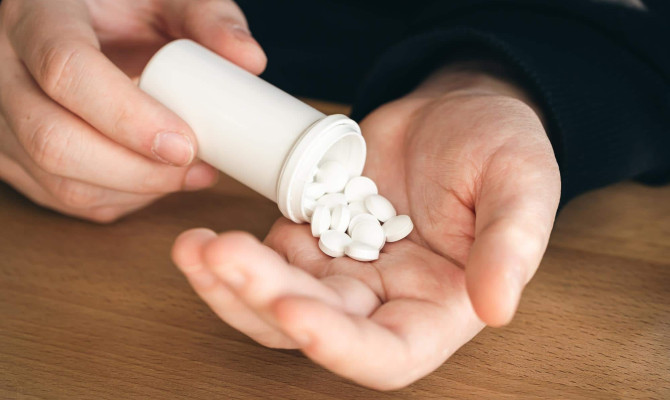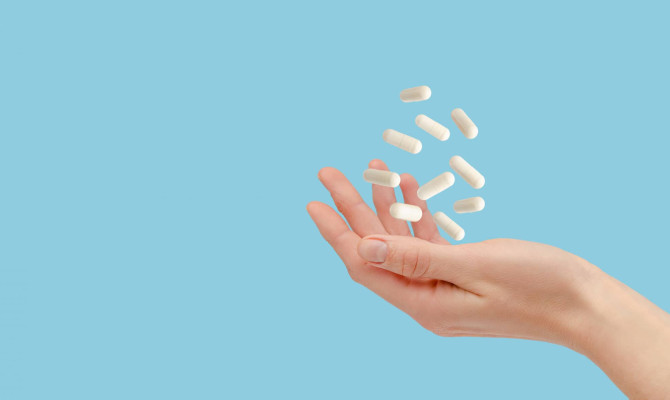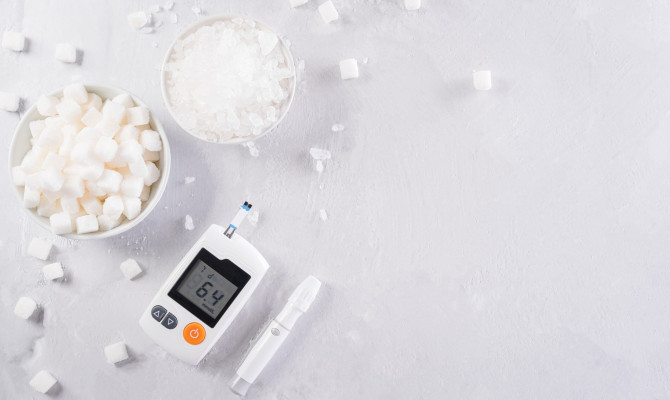Latuda: Uses, Side Effects, and Precautions

- Latuda
- 05 Sep 2023
Introduction
What is Latuda?
Bipolar disorder and schizophrenia are treated with Latuda. It functions by restoring equilibrium to the brain’s dopamine and serotonin levels, which are involved in mood, behavior, and cognitive regulation. It belongs to the class of drugs known as antipsychotics. It has the generic name, Lurasidone. Antipsychotic drugs are useful in the treatment of several mental health issues.

Mode of Action
How does Latuda work?
- Latuda is a member of the class benzisothiazole. It is thought that Latuda affects both serotonin and dopamine receptors.
- Latuda fully blocks the actions of serotonin 5-HT2A & 5-HT7 channels as well as dopamine D2 receptors.
- Latuda exhibits the greatest binding affinity for the 5-HT7 receptor in contrast to other atypical antipsychotics. 1Mode of action | Researched based study from National Institutes of Health
- Due to the blocking of D2 and 5-HT2A receptors, Latuda has the characteristics of an atypical antipsychotic.
- When compared to other antipsychotic agents, this activity level reduces the chance of orthostatic hypotension(black outs), drowsiness, weight gain, & cognitive blunting.
Administration
How to take Latuda ?
- The medication Latuda is taken orally.
- Tablets of Latuda should not be chewed, broken, or crushed. Make sure you ingest them completely.
- Consult your physician or chemist if you experience difficulties swallowing medications.
- They could have ideas about how to make taking medication more bearable.
Dosage
Dosage & Drug Strength
Latuda’s drug strength:
- There are around five different strengths of Latuda tablets ranging from: 20 mg, 40 mg, 60 mg, 80 mg, and 120 mg. 1Mode of action | Researched based study from National Institutes of Health
In Adolescents:
- 40 mg once daily is the suggested initial dose of Latuda.
- It has been demonstrated that Latuda works well at doses between 40 and 80 mg daily. Avoid using drugs more than 80 mg.
In Adults:
- 40 mg OD (once daily) is the recommended initial dose of Latuda.
- It is not necessary to titrate the initial dose. It has been demonstrated that Latuda works well at doses between 40 and 160 mg daily.
- It is advised to use no more than 160 mg daily.
Dosage in patients with renal impairment:
- Patients with moderate to severe deranged renal functions may consider dose adjustment.
- A dose of 20 mg per day is advised in the beginning.
- For these people, the daily dose shouldn’t go above 80 mg.
Dosage in patients with hepatic impairment:
- Patients with moderate to severe hepatic impairment may consider dose modification.
- A dose of 20 mg per day is advised in the beginning.
- Patients with moderate hepatic impairment (early liver failure) should not exceed 80 mg daily, and those with severe hepatic impairment should not take more than 40 mg daily.
Uses
Uses of Latuda
- Latuda is indicated for the management of symptoms associated with schizophrenia in individuals above 13 years of age.
- Schizophrenia is a psychiatric illness associated with cognitive impairment, diminished motivation, and affective dysregulation. 2Uses| Researched based study from Food and Drug Administration
- Additionally, this medication is employed for the treatment of depression in both adult individuals and children aged 10 years and above who are diagnosed with bipolar disorder, a psychiatric condition characterized by alternating episodes of depression, mania, and other atypical mood states.
- In the treatment of depression in individuals with bipolar disorder, Latuda is commonly administered with lithium (Lithobid) or valproate.
- Latuda belongs to a pharmacological category known as atypical antipsychotic agents.
Precautions
Precautions
- It should be noted that abruptly standing up from a lying position while taking Latuda can result in lightheadedness, dizziness, and fainting. When you initially start taking Latuda, this is more common. Get out of bed slowly and place your feet on the floor and wait for a few minutes before getting up to work to prevent this issue (orthostatic hypotension).
- It should be noted that Latuda may impede your body’s ability to cool down in really heated situations. If you want to exercise or be in extremely hot conditions, let your doctor know.
- You should be aware that Latuda may cause an increase in weight.
- Inform your doctor if you are planning a pregnancy, are currently nursing a child, or are pregnant, especially if you are in the latter stages of the pregnancy.
- Inform your doctor if you conceive while taking this medication. If Latuda is taken in the final trimester of pregnancy, it may cause issues for the newborn after birth.
- Inform the physician or orthodontist that you are taking Latuda if you are scheduled for surgery, including dental surgery.
- Be aware that Latuda may cause you to feel sleepy. Till you know how this drug affects you, do not operate any potentially dangerous machinery or drive a car alone.
- If you have an allergy to any of the substances in Latuda tablets, other medications, or Latuda itself, let your doctor and chemist know. Get an ingredient list from your chemist.
- Even if you do not have diabetes, you should be aware that taking this drug may cause hyperglycemia, or increase in blood sugar levels.
- Diabetes is more common in those with schizophrenia than in those without the illness, and taking Latuda or other similar drugs may make this risk worse.
- If you have any of the following side effects while taking Latuda, contact your doctor right away: weakness, blurred vision, excessive thirst, or frequent urination.
- If you experience any of these signs and symptoms, you should contact your doctor right away because elevated blood sugar can lead to a dangerous disease known as ketoacidosis.
- If ketoacidosis is not treated in a timely manner, it could turn fatal. Ketoacidosis symptoms include decreased consciousness, dry mouth, dizziness, vomiting, shortness of breathing, and fruity-smelling breath.
Overdose
Overdose
- There are no particular Latuda counteragents.
- It advised careful observation and supervision in the event of an overdose to prevent tachycardia, orthostatic hypotension, lengthening of the QT interval, and CNS depression.
Side Effects

Side Effects
- In terms of safety, Latuda is preferable to several other atypical antipsychotic medications.
- Compared to risperidone, quetiapine, and olanzapine, treatment with Latuda reduces the likelihood of metabolic adverse effects such as high cholesterol levels, hyperlipidemia, hyperglycemia, and weight gain.
- The most frequent side effects reported by schizophrenia patients included akathisia, drowsiness, nausea, and Parkinsonism. 2Uses| Researched based study from Food and Drug Administration
- Comparing long-term Latuda use to other atypical antipsychotics like quetiapine and risperidone, weight gain is somewhat linked to this medication.
- Increase in prolactin levels were found to be significant in several short-term clinical trials.
- For patients suffering from bipolar depression, Latuda has a similar adverse impact profile.
- The most often reported adverse effects included akathisia, headache, drowsiness, nausea, and extrapyramidal symptoms.
- According to some findings, Latuda raises baseline body weight by 7%.
- To determine the safety and efficacy of Latuda treatment over the long term in bipolar depressive patients, more clinical trials are required.
- When administered to expectant mothers during the third trimester, Latuda may induce extrapyramidal symptoms or withdrawal symptoms in the newborn.
Contraindications
Who should avoid taking Latuda?
- Hypersensitivity to Latuda or any other formulation ingredient
- concurrent usage with CYP3A4 inducers (such as phenytoin, rifampicin, st. John’s Wort, and carbamazepine) and strong CYP3A4 inhibitors (such as ketoconazole, ritonavir, voriconazole).
In Pregnancy
- The patient should be made aware of the possible risks to the fetus if this medication is taken during pregnancy or if the patient gets pregnant while taking this medication.
- Antipsychotic medication exposure in the third trimester of pregnancy increases the incidence of extrapyramidal symptoms in newborns as well as withdrawal symptoms after birth.
During Breastfeeding 3Precautions| Researched based study from National Institutes of Health
- Since Latuda is anchored to plasma proteins, it is unlikely that the medication would be eliminated sufficiently through lactation to have an impact on a breastfed child.
- The inadequate excretion into breastmilk and lack of impact on the breastfed newborn seem to be supported by data from a single mother-infant pair.
- An alternative medication might be favored until additional information is obtained, particularly if you are breastfeeding a newborn or a premature baby.
Storage
Storage
- Latuda should be kept at a room temperature, which is about 20 degrees Celsius (68 degrees Fahrenheit).
- Always use the labeled container for storing medicines. The drug and its expiry date may be quickly located in this way.
- Latuda should be kept in a cool, dry area, out of the reach of children and pets.
- It is important to dispose of unnecessary prescriptions in a specific manner so that children, dogs, and other people cannot ingest them.
- But this drug is not something you should flush down the toilet.
- The best way to get rid of your medication is to use a programme called medicine take-back.
- To find out about take-back initiatives in your area, speak with your chemist or get in touch with the recycling and waste management office in your town.
Other vital information to know:
- Remember to keep all of your doctor’s and the laboratory’s appointments.
- To monitor your body’s reaction to Latuda, your doctor could prescribe specific laboratory tests.
- Don’t give your medication to anyone else.
- If you have any questions concerning filling your prescription, ask your chemist.
- It is vital that you maintain a written record of every medication you take in a personalized diary or file, including over-the-counter (OTC) and other drugs, as well as any supplements, vitamins,etc.
- This list should accompany you to all doctor appointments and hospital admissions.
- Additionally, having this information on hand is crucial in case of an emergency.
Summary
Summary
Lurasidone, also known as Latuda, is a generic form of an atypical antipsychotic drug used to treat bipolar disorder and schizophrenia . It functions by concentrating on particular brain chemicals that assist control mood and lessen symptoms of psychosis. Compared to certain other antipsychotics, Latuda is recognized for having a comparatively reduced risk of weight gain and metabolic side effects, having received FDA approval in 2010. It is usually taken once a day with food, and each person responds differently to it in terms of tolerance and effectiveness. The possible merits and demerits of any medicine should be reviewed with a medical practitioner. 4Summary| Researched based study from ClinicalTrials.gov
Any feedback on this article?
 This Articles content was accurate
This Articles content was accurate Very Informative Article
Very Informative Article I have a question or a comment
I have a question or a comment
 This article contains inaccurate content
This article contains inaccurate content This article was not helpful
This article was not helpful I have a question or a comment
I have a question or a comment
We appreciate your helpful feedback!
Checkout our social pages
References
-
National Institutes of Health
Mode of action | Drug strength
-
Food and Drug Administration
Uses | Side effects
-
National Institutes of Health
Precautions
-
ClinicalTrials.gov
Summary






































